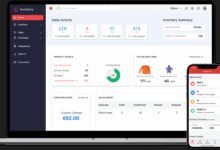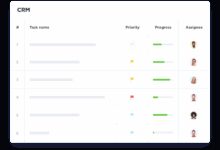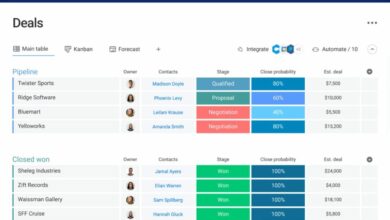Salesforce Implementation Cost: 7 Shocking Truths You Must Know
Thinking about adopting Salesforce but unsure about the real price tag? The salesforce implementation cost isn’t just a one-time fee—it’s a strategic investment with layers. Let’s break down what you’re really paying for.
Salesforce Implementation Cost: What’s Really Included?

When businesses ask about salesforce implementation cost, they often expect a simple number. But the truth is, it’s a complex mix of software, services, customization, and training. Understanding what’s included helps avoid surprise overruns.
Licensing Fees: The Foundation of Your Budget
Licensing is usually the most visible part of the salesforce implementation cost. Salesforce offers several editions—each tailored to different business needs and budgets.
- Salesforce Essentials: Priced at $25/user/month, this is ideal for small businesses just starting out.
- Sales Cloud Professional: At $75/user/month, it offers advanced sales automation features.
- Enterprise and Unlimited Editions: Ranging from $150 to $300/user/month, these are for larger organizations needing deep customization.
Keep in mind, these are recurring fees. Multiply by the number of users and projected growth, and licensing can quickly become your largest ongoing expense.
Consulting and Professional Services
Most companies don’t implement Salesforce alone. They hire consultants or implementation partners to guide setup, data migration, and integration. These services can range from $100 to $250 per hour, depending on the partner’s expertise.
For a mid-sized company, professional services can cost between $25,000 and $100,000. Complex deployments—especially those involving multiple clouds (Sales, Service, Marketing)—can exceed $200,000.
According to Salesforce’s official site, over 70% of successful implementations involve a certified partner.
Custom Development and Integrations
Out-of-the-box Salesforce is powerful, but rarely perfect. Most businesses need custom objects, workflows, or integration with existing systems like ERP, marketing automation, or legacy databases.
- Custom Apex development: $120–$180/hour
- Integration via MuleSoft: $150+/hour
- Custom Lightning components: $2,000–$10,000 per component
These costs are often underestimated. A single integration with NetSuite or SAP can add $15,000–$50,000 to your salesforce implementation cost.
Hidden Costs That Inflate Salesforce Implementation Cost
The sticker price of Salesforce is just the beginning. Hidden costs can double your budget if you’re not careful. Let’s uncover the silent budget killers.
Data Migration and Cleansing
Moving data from old CRMs or spreadsheets into Salesforce sounds simple. But in reality, it’s one of the most time-consuming and costly phases.
Dirty data—duplicates, incomplete records, inconsistent formatting—must be cleaned before import. For a company with 50,000+ records, data cleansing can take weeks and cost $10,000–$30,000.
Tools like Jitterbit or MuleSoft Composer help automate migration but add to the overall salesforce implementation cost.
Training and Change Management
Even the best system fails if users don’t adopt it. Training is not optional—it’s essential. Yet, it’s often under-budgeted or skipped entirely.
- Onsite training: $1,500–$3,000 per day
- Custom training materials: $5,000–$15,000
- Ongoing user support: $500–$1,000/month
According to Gartner, poor user adoption is the #1 reason CRM projects fail. Investing in change management can save you millions in lost productivity.
Post-Go-Live Support and Maintenance
Implementation doesn’t end at launch. You’ll need ongoing support for bug fixes, updates, user questions, and minor enhancements.
Many companies budget for implementation but forget about maintenance. A typical support retainer ranges from $2,000 to $10,000 per month, depending on complexity.
“The true cost of Salesforce isn’t the license—it’s the long-term ownership.” — CRM Industry Analyst, 2023
Factors That Influence Salesforce Implementation Cost
No two Salesforce implementations are the same. Several key factors dramatically affect the final salesforce implementation cost. Understanding these helps you forecast more accurately.
Company Size and User Count
The number of users directly impacts licensing costs. But it also affects training, data volume, and system complexity.
- Small business (1–10 users): $10,000–$30,000 total implementation
- Mid-market (11–100 users): $50,000–$150,000
- Enterprise (100+ users): $200,000–$1M+
More users mean more training, more data, and more potential for customization—each adding to the salesforce implementation cost.
Complexity of Business Processes
A simple sales tracking system is cheaper to implement than a complex, multi-department workflow involving approvals, automations, and external systems.
For example, a manufacturing company with intricate quoting, order fulfillment, and service processes will need far more customization than a small consulting firm.
Complex business logic often requires Apex triggers, process builders, and approval workflows—each adding development hours and cost.
Number of Salesforce Clouds Used
Salesforce isn’t just one product. It’s a suite of clouds:
- Sales Cloud: Core CRM for sales teams
- Service Cloud: Customer support and case management
- Marketing Cloud: Email, advertising, and customer journeys
- Commerce Cloud: E-commerce platforms
- Experience Cloud: Customer and partner portals
Each cloud adds licensing fees and integration complexity. Implementing two or more clouds can increase the salesforce implementation cost by 50–100%.
Typical Salesforce Implementation Cost by Business Type
To give you a clearer picture, let’s break down salesforce implementation cost by business size and industry.
Small Businesses: Lean and Affordable
Small businesses typically use Salesforce Essentials or Sales Cloud Professional. Their needs are straightforward: track leads, manage contacts, and close deals.
- Licensing: $25–$75/user/month
- Implementation: $10,000–$30,000
- Timeline: 4–8 weeks
Example: A 10-person sales team using Sales Cloud Professional would pay $9,000/year in licenses and ~$20,000 for setup—totaling $29,000 in Year 1.
Mid-Market Companies: Balancing Scale and Customization
Mid-sized companies often need deeper customization, integrations, and multiple departments on the platform.
- Licensing: $75–$150/user/month
- Implementation: $50,000–$150,000
- Timeline: 3–6 months
These companies may use Sales Cloud, Service Cloud, and basic Marketing Cloud features. Integration with accounting software like QuickBooks or NetSuite is common.
A 50-user company could spend $450,000 over three years—$225,000 on licenses and $225,000 on implementation and support.
Enterprise Organizations: High Cost, High Reward
Enterprises demand scalability, security, and deep integration. They often use multiple Salesforce clouds and require custom development.
- Licensing: $150–$300/user/month
- Implementation: $200,000–$1M+
- Timeline: 6–12 months
These projects involve dedicated project managers, offshore development teams, and rigorous testing. Data governance, compliance (GDPR, HIPAA), and single sign-on (SSO) add complexity.
For example, a global company with 1,000 users might spend $4.5M over five years—$2.7M on licenses and $1.8M on services.
How to Reduce Salesforce Implementation Cost
You don’t have to sacrifice quality to save money. Smart planning can significantly lower your salesforce implementation cost without cutting corners.
Start with a Clear Scope and Roadmap
Scope creep is the #1 budget killer. Define exactly what you need in Phase 1. Delay “nice-to-have” features to later phases.
Use a Minimum Viable Product (MVP) approach: launch core functionality first, then enhance over time.
A clear roadmap prevents wasted effort and keeps consultants focused.
Use Salesforce’s Free Resources
Salesforce offers a wealth of free tools and training:
- Trailhead: Free interactive learning for admins and developers
- Salesforce Community Forums: Get help from experts
- AppExchange: Free or low-cost apps to extend functionality
Training your internal team on Trailhead can reduce reliance on expensive consultants.
Choose the Right Implementation Partner
Not all partners are equal. Look for:
- Salesforce certification
- Industry-specific experience
- Transparent pricing models (fixed bid vs. hourly)
Some partners offer fixed-price packages for common implementations, which can cap your salesforce implementation cost.
Common Pricing Models for Salesforce Implementation
Understanding how vendors charge helps you compare quotes and avoid surprises.
Hourly Rate Model
Most common for custom or complex projects. You pay for actual hours worked.
- Pros: Flexible, pays only for what you use
- Cons: Hard to predict total cost; risk of budget overrun
Hourly rates vary: $100–$250 for standard partners, $300+ for premium firms.
Fixed-Price Model
Agreed-upon price for a defined scope. Popular for standard implementations.
- Pros: Predictable cost, easier budgeting
- Cons: Changes cost extra; may discourage innovation
Example: A fixed $75,000 package for Sales Cloud setup for 50 users.
Hybrid Model
Combines fixed price for core work and hourly for extras.
Example: $50,000 fixed for setup + $150/hour for additional customizations.
This balances predictability with flexibility—ideal for evolving projects.
Real-World Examples of Salesforce Implementation Cost
Theory is helpful, but real cases tell the full story. Here are three anonymized examples.
Tech Startup (20 Users)
Goal: Replace HubSpot with Salesforce for better scalability.
- Licensing: Sales Cloud Professional ($75/user/month) = $18,000/year
- Implementation: $35,000 (data migration, basic automation, training)
- Total Year 1: $53,000
Used a boutique Salesforce partner. Kept scope tight. ROI seen in 8 months via improved sales tracking.
Manufacturing Company (150 Users)
Goal: Unify sales, service, and order management.
- Licensing: Sales Cloud + Service Cloud Enterprise Edition = $270,000/year
- Implementation: $180,000 (integrations with SAP, custom quoting, training)
- Post-go-live support: $8,000/month
- Total Year 1: $546,000
Project took 5 months. Required extensive data cleansing and change management.
Nonprofit Organization (75 Users)
Goal: Improve donor management and reporting.
- Licensing: Salesforce Nonprofit Cloud (discounted) = $37,500/year
- Implementation: $60,000 (custom dashboards, integration with donation platform)
- Training: $10,000
- Total Year 1: $107,500
Leveraged Salesforce’s 50% nonprofit discount. Used a partner with nonprofit experience.
Future-Proofing Your Salesforce Investment
Your salesforce implementation cost isn’t just about today—it’s about long-term value. How do you ensure your system grows with your business?
Plan for Scalability
Design your org with growth in mind. Avoid hardcoding values. Use custom settings and metadata.
Example: Instead of building a workflow for one region, create a reusable process that can scale globally.
Adopt a Center of Excellence (CoE)
Top companies create internal Salesforce CoEs—teams that govern usage, train users, and manage changes.
A CoE reduces dependency on external consultants and ensures consistency.
Regular Health Checks and Optimization
Every 6–12 months, audit your Salesforce org. Look for:
- Unused fields, objects, or automation
- Performance bottlenecks
- Security and compliance gaps
Regular optimization keeps your system fast, secure, and cost-efficient.
What is the average salesforce implementation cost?
The average salesforce implementation cost ranges from $25,000 to $150,000 for mid-sized businesses. Small businesses may spend $10,000–$30,000, while enterprises can exceed $500,000. Total cost depends on licensing, customization, and consulting fees.
How long does a Salesforce implementation take?
Simple implementations take 4–8 weeks. Mid-sized projects take 3–6 months. Enterprise deployments can last 6–12 months or more, depending on complexity and integration needs.
Can I implement Salesforce myself to save money?
You can handle basic setup using Trailhead and documentation, but most businesses benefit from professional help. DIY implementations risk data errors, poor adoption, and rework costs that exceed initial savings.
Does Salesforce offer discounts for nonprofits or startups?
Yes. Salesforce offers up to 50% off licensing for nonprofits through the Power of Us Program. Startups can apply for the Salesforce Ventures program, which includes discounted licenses and credits.
What’s included in a typical Salesforce implementation project?
A typical project includes requirements gathering, data migration, configuration, customization, integration, testing, training, and go-live support. Ongoing maintenance is usually billed separately.
Understanding the true salesforce implementation cost is critical for any business considering CRM transformation. It’s not just about software—it’s about people, processes, and long-term strategy. By planning carefully, leveraging free resources, and choosing the right partners, you can maximize ROI and avoid budget blowouts. The key is to see Salesforce not as an expense, but as a strategic asset that grows with your business.
Further Reading:






